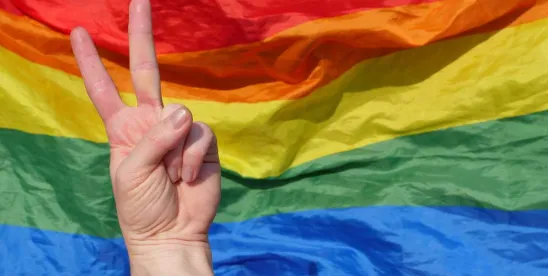Organizing and conducting cultural celebrations, acknowledgements, and educational programs in the workplace present thornier issues today in light of the new administration’s policies, including the numerous executive orders (EO) pertaining to diversity, equity, and inclusion (DEI) that President Trump has signed since taking office. While cultural celebrations were previously thought to serve as an educational and morale-building tool in creating an inclusive, equal employment opportunity workplace, companies are now considering whether they must or should cancel these activities altogether or withdraw their sponsorships of these events. With Pride Month fast approaching, considerations and potential approaches for companies facing these issues may assist in deciding what fits within an organization’s compliance obligations and risk tolerance.
Quick Hits
- Some companies are reconsidering and even cancelling cultural celebrations, acknowledgements, and activities, such as Pride Month activities, in response to increased scrutiny from the new administration.
- Employers should be mindful of the EEOC’s technical assistance focused on DEI titled “What You Should Know About DEI-Related Discrimination at Work,” which previews the EEOC’s position on certain DEI initiatives and potential rights and claims under Title VII of the Civil Rights Act of 1964 related to DEI initiatives.
- Employers considering cultural celebrations may also want to consider factors such as their budgets; economic uncertainty; which sponsorships and celebrations to choose and why; whether they will use federal funds to pay for these activities and the potential legal and contractual implications if they do; the takeaways and potential optics impacting the organization’s employees, customers, and stakeholders; and whether a visible partnership exposes the organization to consequences outside of the company’s current risk tolerance.
The Impact of EO 14173 for Pride Month and Beyond
EO 14173, which President Trump signed on January 21, 2025, has introduced significant changes for organizations doing business with or receiving money from the federal government. The order mandates that these organizations certify that they do not operate DEI programs that violate federal antidiscrimination laws. This certification is now a material term for purposes of the False Claims Act (FCA), adding a layer of complexity for businesses, especially in light of the U.S. Department of Justice’s (DOJ) May 19, 2025, announcement that it will create a new investigative unit for DEI/FCA investigation and enforcement.
With Pride Month quickly approaching in June, some employers are revisiting their engagement on LGBTQ+ issues in light of EO 14173 and other new DEI-related executive orders and related guidance from agencies like the U.S. Equal Employment Opportunity Commission (EEOC) and the DOJ. A recent study by Gravity Research found that two in five corporate executives are pulling back from Pride Month engagement in 2025 compared to previous years. The study revealed that six in ten executives cited President Trump’s policies regarding transgender people and DEI initiatives as the primary reason for this shift. Additionally, 40 percent of executives expressed concerns over potential criticism from customers, shareholder derivative actions, and disagreements over the content of such celebrations. Of course, with “unlawful DEI” undefined in the EOs or otherwise, whether celebrations or education fall within that undefined term remains to be seen and will be highly fact-specific.
Considerations for Lawful Celebrations and Education
The lack of clear guidance from the administration on what constitutes unlawful DEI practices has left many employers in a state of uncertainty. In fact, one of the most common questions employers are struggling with in light of these developments is whether employers should cancel their sponsorships of events like Pride parades. The answer is not straightforward, as it depends on various factors, including legal compliance and each employer’s risk tolerance.
Despite the changes brought by the new administration, employers may continue to acknowledge historical events and educate their workforces on protected characteristics. While celebrations and educational programs on identities and protected characteristics are still legal, employers may need to consider how to carefully manage and execute them.
One foundational step is ensuring that educational and cultural programming is not exclusionary. For instance, activities that divide groups by protected characteristics or only permit those with certain characteristics to participate would likely be exclusionary. Additional relevant guardrails for compliance that employers can choose to use to help them stay on the right side of the law and avoid enforcement crosshairs when adopting cultural celebrations include:
- EEOC Technical Assistance: Employers should be mindful of whether they have aligned their programs with the EEOC’s technical assistance and other active guidance. Notably, on May 15, 2025, a federal court vacated portions of the EEOC’s workplace harassment guidance, specifically, guidance on harassment based on sexual orientation and gender identity. Employers should remain mindful of all applicable law, including state and local laws prohibiting discrimination and harassment on gender identity and sexual orientation.
- Unlawful Segregation: Employers should consider whether their programs, celebrations, or employee groups segregate employees based on protected characteristics. For example, do certain activities group LGBTQ+ employees separately from non-LGBTQ employees? Are the events open in all respects to all individuals to participate? Are roles within groups or activities limited in any way?
- Voluntary Participation: Employers should examine their celebrations and educational programs to verify participation is voluntary—excluding, of course, the need to conduct legally required training on harassment, discrimination, and equal employment opportunity compliance.
- Accommodation Requests: Employers may need to be prepared to manage employees’ requests for accommodations based on religious beliefs and robustly consider all concerns and intersecting rights as they may arise.
- Equitable Recognition: In recognizing different characteristics, cultures, and holidays, employers can strive for fairness and equity and generally ensure that their DEI initiatives are balanced and inclusive.
Risk Management and Privileged Assessments
When deciding whether to sponsor events like Pride parades, companies may want to consider conducting a return on investment (ROI) analysis. One factor to consider is the impact of economic uncertainty on the company’s budget and the optics of participation. Federal contractors and recipients of federal funds—which are facing tight scrutiny under the Trump administration—may want to be particularly cautious and may wish to avoid using federal funds for these celebrations.
In this respect, ongoing, privileged assessments may help employers analyze the data they have on hand that may be relevant to these analyses. Assessments typically evaluate risk tolerance, ROI, and compliance with evolving laws and administrative approaches. In particular, employers can closely assess their own celebrations and educational programs and their sponsorships of cultural events to see if they align with both the company’s lawful DEI initiatives and legal antidiscrimination requirements, but also achieve the desired ROI.
Looking Ahead
As the administration’s approach to DEI continues to evolve, companies would benefit from staying informed and adaptable. The upcoming strategic enforcement plan from the attorney general, which is expected on or after May 21, 2025, may provide further guidance on these and other DEI issues. While the current environment presents challenges for DEI celebrations and education, careful planning, legal compliance, and ongoing assessments can help organizations navigate these complexities successfully.





 />i
/>i
